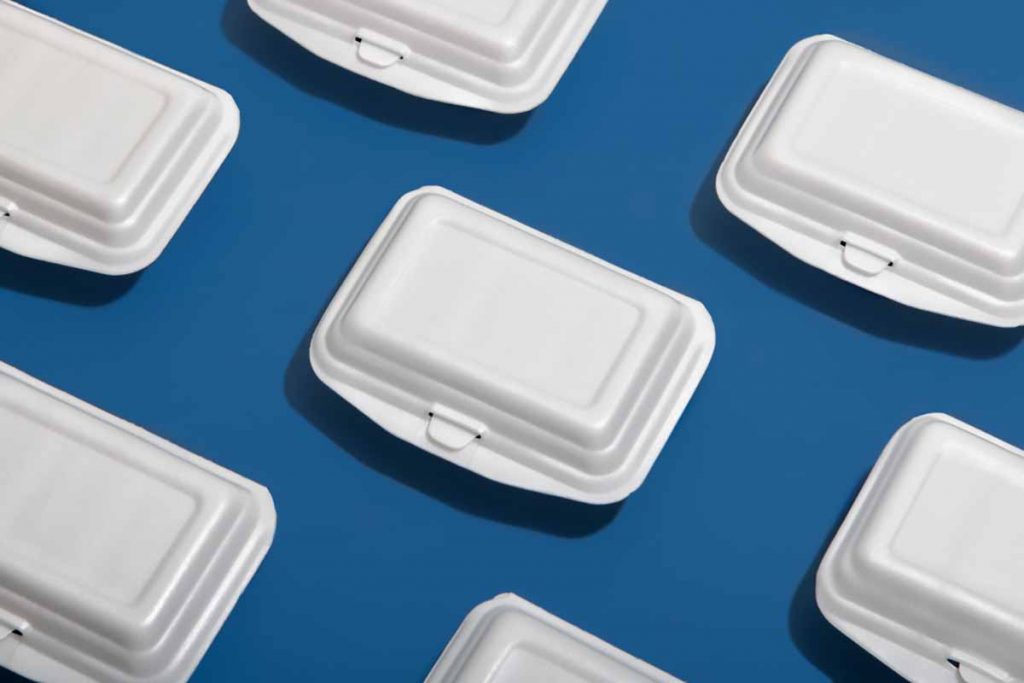
California’s extended producer responsibility for packaging law requires EPS food service ware and packaging to demonstrate a recycling rate of no less than 25% by Jan. 1. | Minh Mi Goi/Shutterstock
Expanded polystyrene food service ware producers have only a few months left to prove that the material has a recycling rate of at least 25% in California or face the prohibition of selling into the state.
Part of California’s extended producer responsibility for packaging law, SB 54, sets a requirement for foam polystyrene food service ware, such as cups, trays and takeout containers, to demonstrate a recycling rate of no less than 25% by Jan. 1. It will ramp up to at least 30% on Jan. 1, 2028; 50% by 2030 and 65% by 2032.
The targets are aggressive by design, described as a de facto ban by the original bill author, State Sen. Ben Allen. Allen said after the bill was signed that environmental groups wanted a full EPS ban, but some lawmakers had a “long-standing opposition to any explicit product ban.”
“At the end of the day we got to a place where we put in place an aggressive interim standard for expanded polystyrene,” he said in 2022. “It will be very hard for them to meet it with how low the rate currently is, but the folks on the business side wanted to give them a fighting chance.”
While a direct recycling rate for food service related EPS was not available from the state, Nick Lapis, director of advocacy for Californians Against Waste, told Policy Now he was “not aware of any municipal recycling programs that recover meaningful amounts of foam takeout containers.”
“At best, some sorting facilities recycle clean block foam, but that isn’t the material being banned in 2025,” he added.
The U.S. EPA’s Waste Characterization Study data from 2018, the most recent year available, noted that 2.26 million tons of polystyrene in general was generated, including in durable goods, and about 20,000 tons of that was recycled, or 0.9%.
Some individual PS producers have independently announced recycled content goals, such as Americas Styrenics’ goal of having 25% recycled content in foodservice and food packaging products by 2030, announced in 2020. It later increased that goal to 30% recycled content.
In its most recent sustainability report the company said it used 5.6 million pounds of recycled PS feedstock in 2023. The report didn’t specify the company’s overall PS generation. Regenyx, its joint PS recycling venture formed in 2019 with pyrolysis company Agilyx, closed down in March.
Lapis added that “EPS manufacturers have never provided any data to indicate that foam takeout packaging has any meaningful recycling.”
“CalRecycle’s action on this isn’t just about EPS,” he added. “This is the first major enforcement milestone under SB 54, and I think all producers are looking to see if the state will actually follow through on holding manufacturers accountable for meeting the targets in the law.”
If the minimum rates are not met, then SB 54 “restricts producers of expanded polystyrene food service ware from selling, offering for sale, distributing or importing expanded polystyrene food service ware in or into the state,” according to the statute.
The EPS Industry Alliance did not respond to a request for comment.

